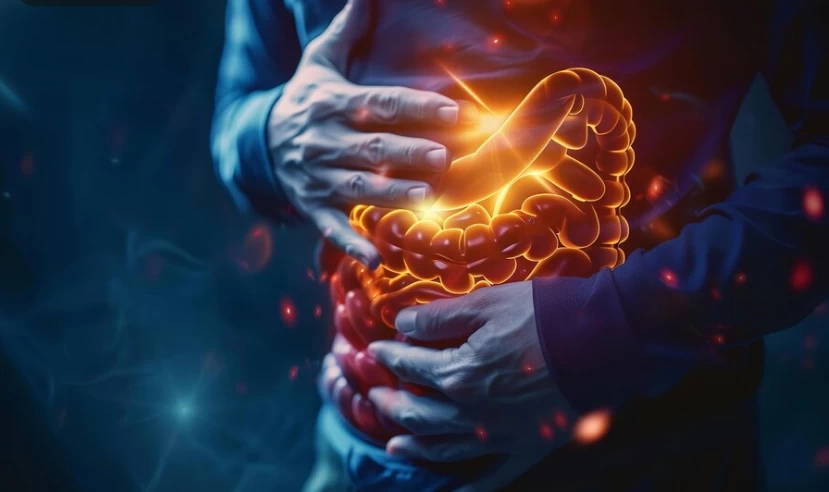
Ulcerative Colitis: Definition, Symptoms, and Treatment
- Ulcerative Colitis: Definition, Symptoms, and Treatment
Ulcerative colitis is a chronic inflammatory bowel disease that affects the large intestine (colon) and rectum. This condition causes inflammation and ulcers (sores) on the inner lining of the colon, leading to severe symptoms. It commonly occurs in young adults and middle-aged individuals, but it can manifest at any age. Ulcerative colitis is similar to other inflammatory bowel diseases, such as Crohn's disease, but it has distinct symptoms and treatments.
Symptoms
The symptoms of ulcerative colitis vary depending on the severity of the disease and the specific part of the colon affected. The main symptoms include:
- Diarrhea: Bloody, mucous-filled, or watery stools are common.
Abdominal Pain: Often localized to the lower left side and can be severe.
Bleeding: Blood may appear in or be mixed with stool.
Fever: Inflammation can be accompanied by a fever.
Weight Loss: Due to loss of appetite, poor nutrition, and chronic bleeding.
Fatigue: Persistent inflammation and blood loss can lead to fatigue.
Rectal Pain and Tenderness: Pain can be felt during bowel movements or while sitting.
Diagnosis
Ulcerative colitis is typically diagnosed through symptoms, physical examination, blood tests, sigmoidoscopy or colonoscopy, and tissue samples (biopsy). During a colonoscopy, the doctor examines the inner lining of the colon and can observe signs such as ulcers, inflammation, and tissue damage. Biopsy involves analyzing tissue samples to determine the severity and nature of the inflammation.

Treatment
Treatment for ulcerative colitis depends on the severity of symptoms, the extent of the disease, and the overall health of the patient. The treatment aims to alleviate symptoms, reduce inflammation, and prevent relapses. Treatment options may include:
- Medications: Anti-inflammatory drugs, immunomodulators, corticosteroids, and biological agents can help control symptoms and reduce inflammation.
Diet and Nutrition: Some patients may find that certain foods or beverages trigger symptoms. Therefore, dietary changes and the elimination of specific foods can help manage symptoms.
Surgery: For patients who do not respond to medication or have serious complications, surgical intervention may be necessary. This may involve partial or total removal of the colon (colectomy).
Important Notes and Recommendations
- Regular Monitoring: Regular follow-up is crucial for patients diagnosed with ulcerative colitis. This monitoring helps track symptoms, evaluate the effectiveness of medication, and detect potential complications early.
Smoking and Stress Management: Smoking and stress can exacerbate ulcerative colitis symptoms. Therefore, quitting smoking and managing stress are important.
Support Groups and Psychological Support: Joining support groups or seeking psychological counseling can provide emotional support and information sharing for those living with ulcerative colitis.
Ulcerative colitis can significantly impact the quality of life. However, with appropriate treatment and management strategies, symptoms can be controlled. It is essential for individuals living with the disease to have regular medical follow-ups, a healthy lifestyle, and supportive therapies to manage their condition effectively.

Spc. Dr. Ömer Faruk Yolcu
Gastroenterology Specialist





